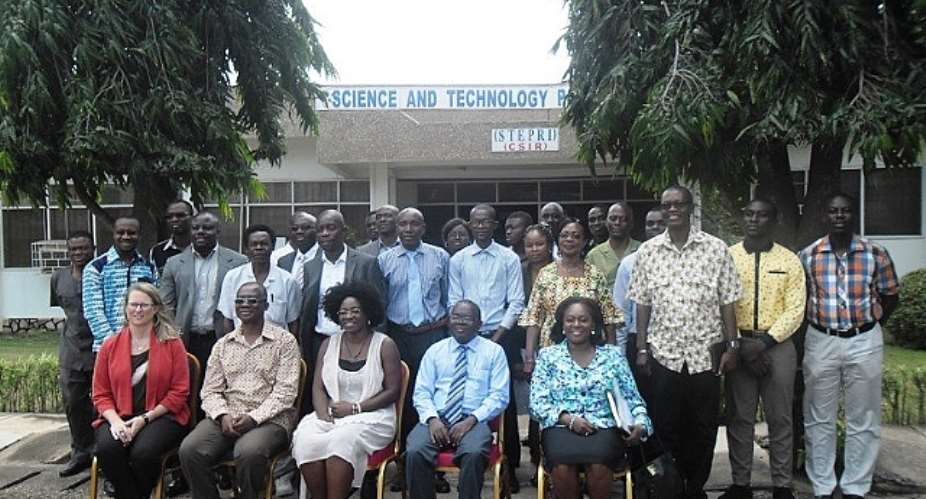Accra, July 30, GNA - A study has urged governments to ensure strategic deployment and equipping Information and Communication Technology (ICT) Public Access Venues, to guarantee that people living in depraved areas of the world participation in the digital revolution.
The research dubbed 'The Global Impact Study on Access to Public ICT,' which covers Ghana, South Africa, Botswana, Chile, Brazil, Lithuania, Philippines and Bangladesh, was led by the Social Change Group of the Information School, University of Washington.
The study which spanned over a five-year period (2007-2012) was to generate evidence about the scale, character, and impacts of public access to information and communication technologies.
It looked at libraries, telecenters, and cybercafés, and also investigated impact in a number of areas, including communications and leisure, culture and language, education, employment and income, governance and health.
It also examines the political, social and economic impacts of public access to ICTs and the relationship between costs and benefits of providing and using public access ICTs.
Dr Araba Sey, a Research Assistant Professor at the University of Washington Information School presented the findings of the study on Wednesday at a day's workshop in Accra, organized by the Centre for Scientific and Industrial Research (CSIR) - Science and Technology Policy Research Institute (STEPRI) for the academia, researchers, media, cybercafé operators and the public.
She said public libraries play a critical role in extending the benefits of ICTs to a diverse range of people worldwide.
The Global Impact Study results show that a central impact of public libraries is promoting digital inclusion, information access, and development of ICT skills through technology provision, particularly for marginalized populations and those who face challenges using and benefiting from computers and the internet.
The study also suggest a number of library characteristics that are important to users and provide a unique public value, with both users and non-users reporting positive impacts and a willingness to pay to maintain the existence of public libraries.
According to the ICTs in libraries provide a critical foundation for digital inclusion and technology access.
It called for leveraging of existing infrastructure and providing domain-specific resources at public access venues.
The research revealed that majority of ICTs Public Access Venues users are young with 68 per cent under 25 years, 65 per cent males, 82 per cent being high school and post high school graduates, 44 per cent students, 39 per cent unemployed and 74 per cent had English language proficiency.
Rebecca Sears, Assistant Director, Technology and Social Change Group of the University of Washington said research findings must inform policy formulation.
Dr George Owusu Essegbey, Director CSIR-STEPRI said research findings by all the 13 institutions under CSIR had bearings on Ghana's socio-economic development.
Dr Joel Sam, Director CSIR-Institute for Scientific and Technological Information remarked that there is the need to ensure the sustainability of donor funded ICTs projects for long term benefits.
Dr Godfred K. Frempong, Lead Researcher/Deputy Director CSIR-STEPRI in a presentation on the Ghana study entitled 'Deployment and Utilization of Public Access Venues: The Case of Ghana' said the study shows that Public Access Venues serve two purposes in the country, firstly as business centres and secondly as service providers which enable many people to use computer and internet services.
He said the study also recommended that the National Communications Authority should explore the possibility of introducing some form of regulatory intervention into the internet market which presently is unregulated to ensure its growth.
GNA





 Meta releases new version of conversational AI across its platforms
Meta releases new version of conversational AI across its platforms
 Cape Town named Africa’s Best Airport 2024 by Skytrax
Cape Town named Africa’s Best Airport 2024 by Skytrax
 Bono East: Four injured after hearse transporting corpse crashes into a truck
Bono East: Four injured after hearse transporting corpse crashes into a truck
 ‘Be courageous, find your voice to defend our democracy’ — Sam Jonah urges journ...
‘Be courageous, find your voice to defend our democracy’ — Sam Jonah urges journ...
 Exodus of doctors, nurses and teachers have worsened because of unserious Akufo-...
Exodus of doctors, nurses and teachers have worsened because of unserious Akufo-...
 2024 election: Avoid insults, cutting down people in search of power – National ...
2024 election: Avoid insults, cutting down people in search of power – National ...
 ‘You passed through the back door but congratulations’ — Atubiga on Prof Jane Na...
‘You passed through the back door but congratulations’ — Atubiga on Prof Jane Na...
 Government’s $21.1 billion added to the stock of public debt has been spent judi...
Government’s $21.1 billion added to the stock of public debt has been spent judi...
 Akufo-Addo will soon relocate Mahama’s Ridge Hospital to Kumasi for recommission...
Akufo-Addo will soon relocate Mahama’s Ridge Hospital to Kumasi for recommission...
 We must not compromise on our defence of national interest; this is the time to ...
We must not compromise on our defence of national interest; this is the time to ...
